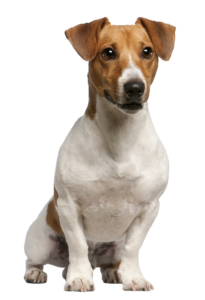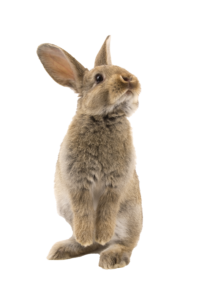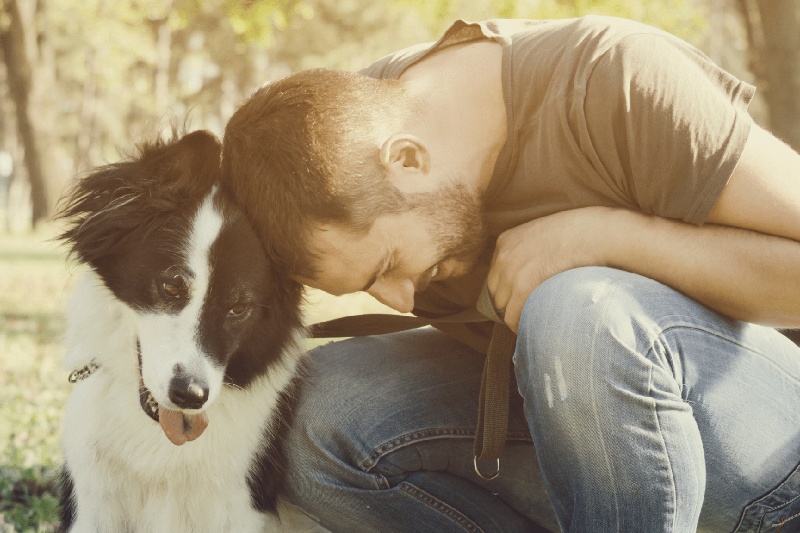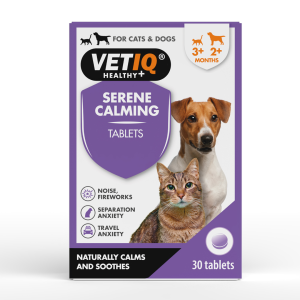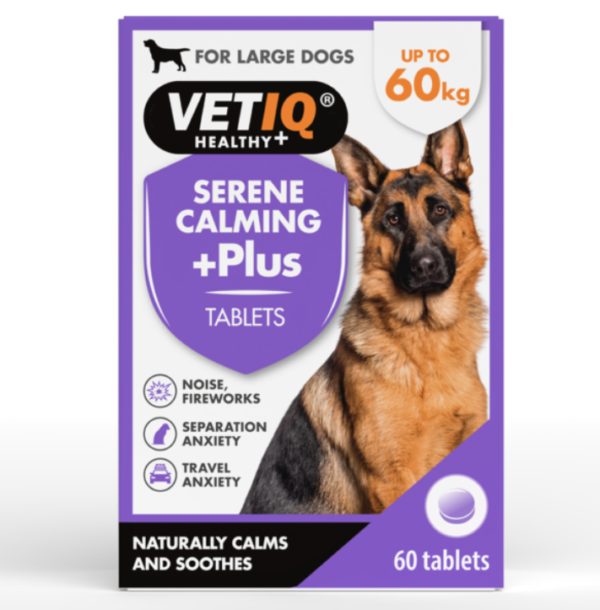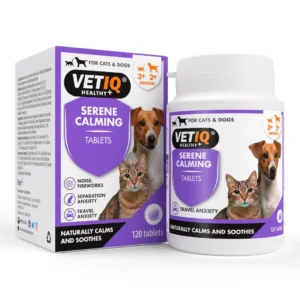The definition of the phrase “it’s a dog’s life” has become distorted in recent years. Far from enduring a difficult, unhappy existence, the vast majority of dogs that are part of a loving family lead pampered and privileged lives, with their every need catered to.
Although treating a furry companion as an important family member is a wonderful thing, it can sometimes lead to blurred lines that cause a pet owner to forget that their dog is, in fact, a dog.
This can happen when we attribute human characteristics to an animal, which is referred to as anthropomorphism. Examples of anthropomorphism in action can range from dressing your dog to match your own style or assigning unrealistic and impractical human qualities to them.
While the intentions behind it may be innocent, it can be a potentially dangerous behaviour as it deprives our pets to be who they naturally and instinctively are.
One of the most common human interactions that we attempt to offload onto our dogs is hugging. It may be an affectionate impulse for us, but for many pups, it can inspire fear, anxiety and general discomfort.
In this article, we examine the main reasons why your dog may not be the biggest fan of cuddle time – and why you shouldn’t take it personally.
Reasons Why Some Dogs Don’t Like Hugs
While a dog’s reluctance to hug may be down to issues such as previous abuse or even undiagnosed pain or injury, there are a couple of more common reasons that are likely to explain their less-than-enthusiastic reaction to your embrace.
Firstly, hugging doesn’t come naturally to dogs.
Some pet parents might understandably be in denial regarding the possibility that their dog doesn’t appreciate their hugs, but if you think about it, it makes complete sense. Dogs and human beings are two entirely different species, meaning what feels natural and normal for us may seem confusing and unappealing to our canine friends.
Hugs fall into this category. While many of us hug to express feelings of excitement, happiness, celebration and even sadness, the same cannot be said for pups. When they meet other dogs in the park, their innate reaction is to bark at them, sniff them, or perhaps even jump around with them. It’s safe to say that hugging doesn’t come into the equation as an accepted or utilised form of expression for dogs.
We need to respect this by not forcing our pets to fall in line with a practice that feels unnatural to them.
Hugging can feel threatening to dogs
The second reason our pets may disapprove of hugging ties in with the first: it can feel like a threatening behaviour.
As cursorial creatures, dogs are built to run, particularly as a means of escape from dangerous situations. When a pet parent hugs their pooch, it can feel to them as if they are being restrained, unable to move and escape from the embrace. This can induce great distress and anxiety and cause a dog to either freeze in fear or snap due to panic.
This reaction can be especially prevalent in dogs who have not been taught that hugging is acceptable behaviour.
Many dogs that have become accustomed to receiving hugs from their owners, or perhaps even well-meaning strangers, have been taught from a young age to view this physical response as a positive interaction. Other dogs who have not, might interpret an embrace as a potential threat, almost like they are being unduly restrained for some unknown reason.
If your dog has always welcomed hugs but has suddenly begun to display anxious tendencies when you go in for a snuggle, there may be an underlying issue at play that you should speak to your vet about.
It could also be a good time to introduce a dietary supplement that’s designed to combat tension and stress in pets, without having a sedative effect. The SERENE-UM range by VetIQ, which helps to manage the cause of anxiety, does exactly this.
How to recognise when your dog is not a hugger
Some dogs, including specific breeds like Labradors and Golden Retrievers, love nothing more than a cuddle from their doting owners. However, a significant number of dogs would disagree with this sentiment.
Furthermore, as a pet owner, it’s important to ensure your pooch is happy and content and that they feel safe in their home environment.
You should therefore be willing to put your feelings aside and respect your dog’s concerns about hugging, particularly if it makes them anxious and uncomfortable.
To do this, you should take note of your dog’s reaction when you go to hug them. They are likely distressed by it if they display any of the following body language:
- Wide eyes
- Closed mouth
- Lowered or pinned-back ears
- Stiff body
According to certified Applied Animal Behaviourist Dr Patricia McConnell, one of the best ways to gauge your dog’s true feelings on the subject is to have someone take a picture of their face as you hug them.
“When we hug our dogs, we don’t see their face,” she explains. “[A client] will say, ‘My dog loves it!’. Then I’ll take a picture and show them, and they’ll say, ‘Oooh…’.”
A lack of hugs doesn’t indicate a lack of love
There’s no denying that experiencing resistance from your beloved pooch when it comes to all things cuddle related can sting a little.
However, it’s crucial not to take it personally and to remember one vital piece of information: if your pet doesn’t love hugs, this does not mean he or she doesn’t love you!
In fact, by respecting their boundaries and reminding yourself of the fact that their DNA is hardwired with certain animalistic aspects that you cannot change, they will love you even more.
Hugging may be off the table, but you can bond with your dog in countless other ways. Taking them for a long walk, spending lots of one-on-one time playing together, and giving them plenty of belly scratches will show them just how much they mean to you – and they are sure to shower you with unconditional love in return.
For more expert pet-care advice, along with a wide range of industry-approved products that help to combat everything from weakened hind legs to separation anxiety, visit us today at Mark + Chappell.

